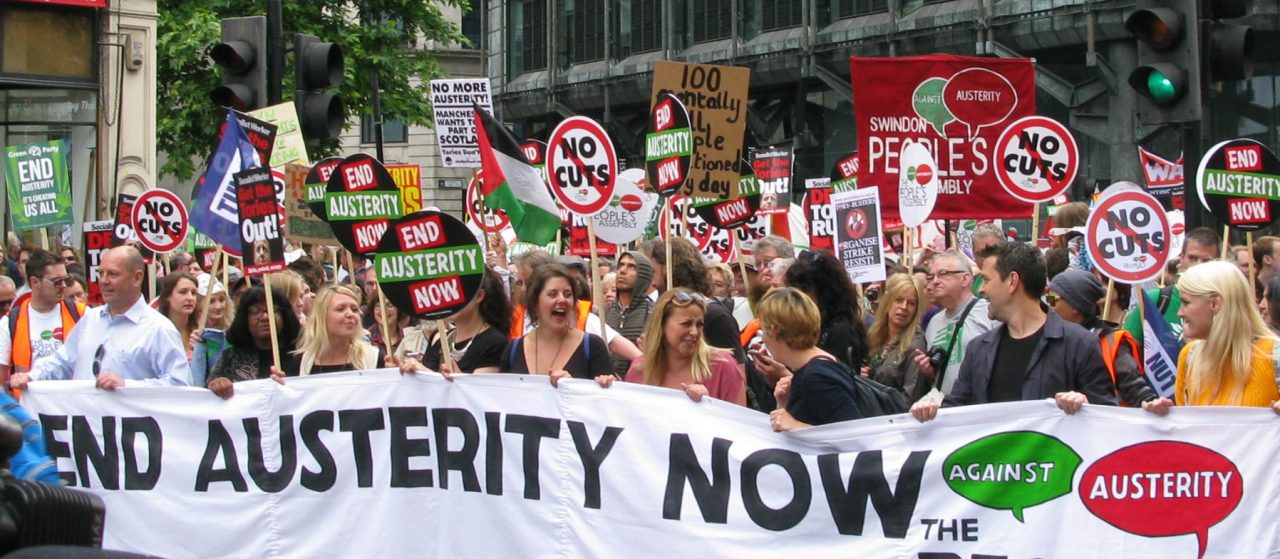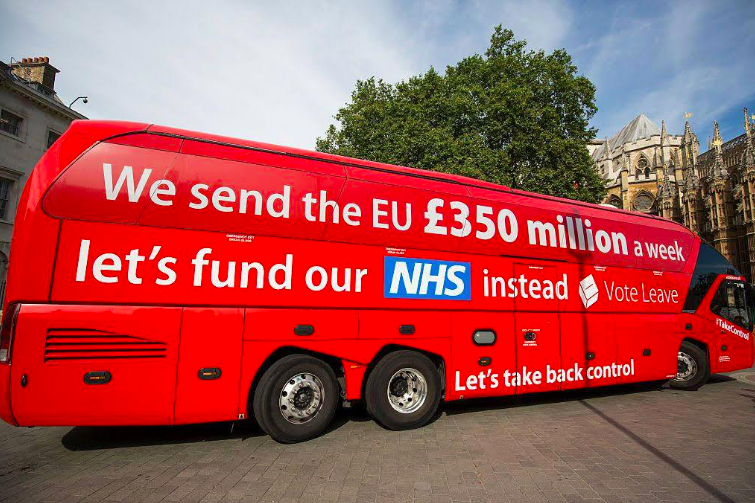
How will the UK Budget 2018 change your life?
Philip Hammond - a Chancellor so charismatic he goes by the name “Spreadsheet Phil” - gave a Budget speech on Monday. Want to read it in all its glory? Click here. Want to just find out what it means for you without having to wade through thousands of words on “fiscal headroom” and “spending review periods”? Dw, we’ve got ya.
(Quick recap on what the Budget is: it’s where the Chancellor of the Exchequer, aka the government’s main money manager, gives a big speech about what their plans are for the next year. We’ve got a nifty video about it below.)
Is austerity over?

The Budget promised no more big public spending cuts and dropped plans to get rid of the deficit. But only healthcare is going to get tonnes more money.
What it means: Austerity, or big reductions in the amount of money the government spends on public services like healthcare, welfare and the police, has been UK government policy since 2010.
The reason for austerity was that pre-2010 the UK had a big - and growing - budget deficit, which meant the government was spending more money than it had coming in (the government gets most of its revenue -aka income- from taxes, and some from businesses it owns). For many people, including the elected Tory Party, that was thought to be bad money management, like if you maxed out credit cards on designer handbags when your job only pays minimum wage.
But lots of other people disagreed. They pointed out that governments can use money differently to the rest of us (they can create money to pay off their debts, for a start). And they thought spending cuts stopped public services from working well, which was bad news considering Brits need these services to cure their illnesses, help them pay their bills when unemployed, and stop them getting robbed or murdered.
In his Budget speech, Philip Hammond said austerity is now “coming to an end”. There were no new big cuts in spending, and he dropped a long-held Tory promise to get rid of the budget deficit entirely by 2020 (the government will be spending 1.4 percent more than they earn instead, which is about £40 billion-ish). But he’s not reversing most of the public spending cuts, which his political opponents say is needed.
However, Phil is spending more money on healthcare and, er, potholes (which, tbf, piss people off so much that they’ve been called a “national embarrassment”). The NHS is getting an extra £20.6 billion by 2025, which works out as about £400 per Brit or the average daily cost of a hospital bed. Road repairs, including potholes, get a bit more: £30 billion.
In contrast, schools are getting a one-off bonus of £400 million between them for “little extras” (Phil suggested some snazzy new whiteboards). Teachers aren’t thrilled, not least because the opposition Labour Party said that if they’d been in power they'd have given schools £6 billion: 15 times more.
Read our explainer on government deficits.
Will I be richer or poorer?

Tax cuts and rising minimum wages will put a bit more money in all workers' pockets. Changes to Universal Credit will help people on low incomes.
What it means: The Budget had some goodies for all working Brits kicking in from next April. The personal allowance, or the amount of your wages you get tax free, is going up £700 to £12,500 a year. That’ll make the average worker about £130 better off a year.
There’s also going to be extra cash for Britain’s lowest earners (the National Living Wage, which is the lowest amount of money businesses can pay over-24-year-olds, will go up to £8.21 an hour from £7.83) and its higher earners (the higher rate tax threshold will kick in at £46,350 rather than £43,875).
Britain has a progressive tax system, which means the more money you earn the more tax you pay. Every penny you earn over the personal allowance is taxed at 20 percent, until you get to the higher rate tax threshold. Every penny over that is taxed at 40 percent. So Brits earning over £46,350 will get about an extra £500 a year on top of that £130 from the raised personal allowance.
Phil says his Budget is going to help the poorest Brits the most though. Specifically, he's gonna put an extra £890 in the pockets of single parents who are working 25 hours a week on National Living Wage while claiming Universal Credit (through his Budget reforms, not personally. That would be creepy.) Universal Credit is the government’s new way of giving welfare payments to Brits who need government help paying their bills.
Universal Credit was supposed to make claiming welfare easier, by combining loads of existing benefits (like Housing Benefit and Income Support) into one monthly payment. And it was supposed to “make work pay” by making benefits slowly decrease as people earned more money (under the old system, benefits abruptly stopped once you earned a certain amount).
But lots of people think the government made a hash of rolling it out, and that it makes vulnerable Brits worse off because it’s less generous than the previous system. So Phil is going to raise the work allowance, or how much parents and disabled people can earn before the amount of Universal Credit they get is reduced, by £1000. That’ll make these people £630 better off a year.
Read our explainers on taxes and minimum wages.
What about Brexit?

Tbh, there wasn’t a lot about it. But one organisation says Brexit could have a big impact on if this budget will work.
What it means: Pretty much everyone thinks that leaving the EU in March 2019 is going to do something to Britain’s economy, even if they can’t agree on what. So it’s perhaps a bit odd that the last Budget before Brexit only mentioned it once, when Phil said he’ll put an extra £500 million aside for unspecified “preparations”. He also said he’s going to put an odd few million into British fishing and entrepreneurship to help them out in a post-Brexit world. Oh, and Brits are getting a new 50p Brexit coin. Yay?
The Institute for Fiscal Studies (IFS), which does lots of research on how the government’s money decisions might affect the British economy, said the whole Budget was “a bit of a gamble” because it needed the government to get a decent amount of tax next year to add up. Getting lots of tax requires things like high levels of employment (so more income tax), good wages (so more people hitting higher income tax thresholds), businesses doing well (so more corporate tax) and Brits spending lots of money buying stuff (so more VAT). But the gloomier Brexit forecasts say leaving the EU is going to do precisely the opposite.
If Britain and the EU don’t come up with a Brexit deal, Phil says he’ll make a new emergency budget. And if Brexit is going badly, he might have to take back some of his tax cuts and spending promises. Maybe don’t spend that Personal Allowance bonus just yet…
Read our explainer on Brexit.



